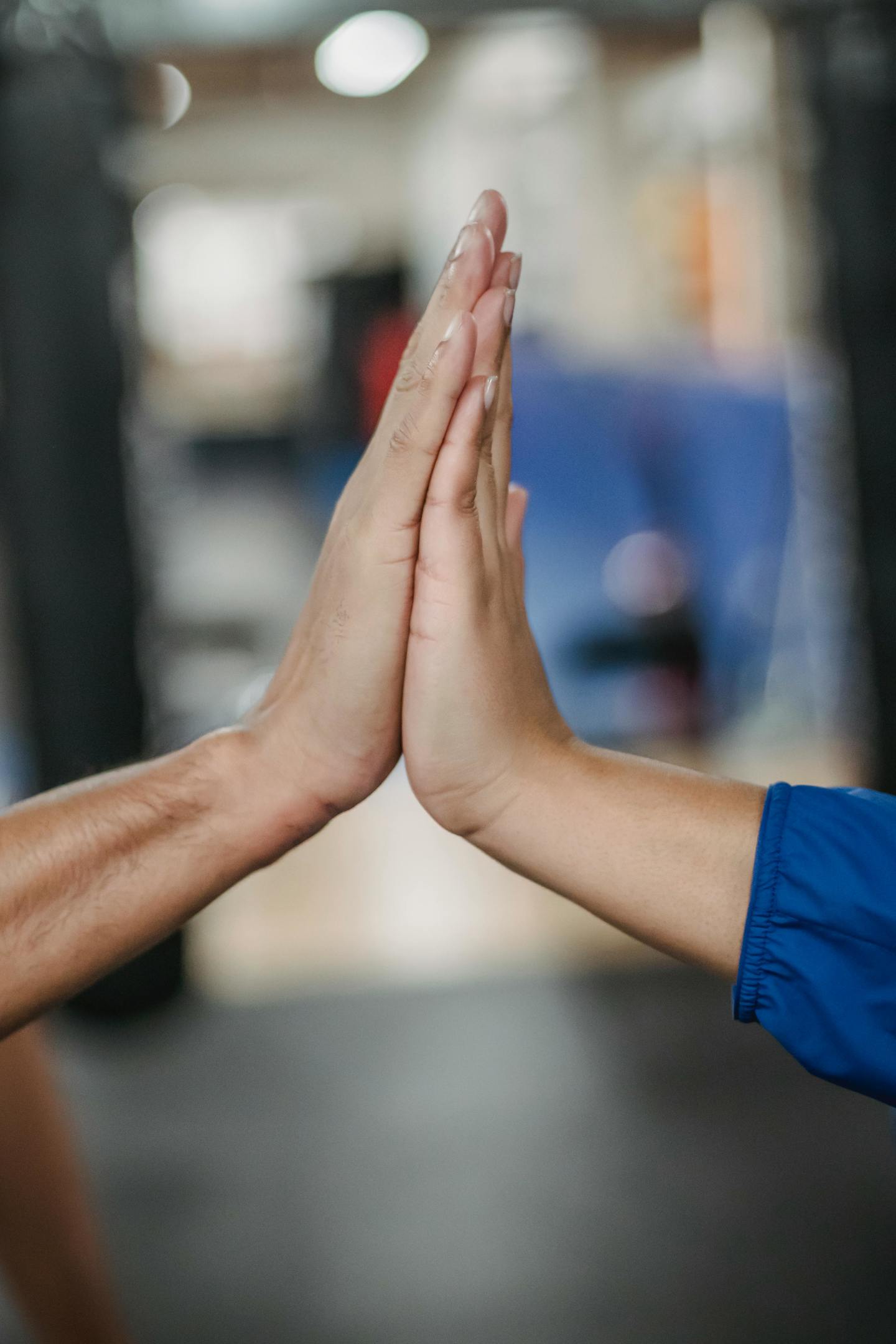Best Defense for Domestic Violence Charge: Your Guide

Building the best defense for domestic violence charge can feel like standing at the edge of a precipice, with your future hanging in the balance. This article offers a key to understanding the complexities and repercussions of domestic violence allegations and your best defense to defend yourself on domestic violence charges in California.
You’re about to discover why picking an experienced criminal defense attorney is not just important but could very well be the game-changer in your case. Exploring the spectrum from unfounded allegations to justifiable self-defense, we’ll meticulously examine defenses that have historically shifted outcomes within judicial arenas.
We don’t stop there; understanding evidence analysis and police report scrutiny are pivotal pieces of the puzzle too. Let’s start unraveling these layers together, setting you on a path toward clarity and empowerment.
Understanding the Nature of Domestic Violence Charges
When someone mentions a domestic violence charge, it often conjures images of physical altercations. However, the complexity of domestic violence charges extends far beyond what is initially visible. Charges of this nature cover a spectrum of acts within the intimate confines of familial or household relationships.
What really falls under the umbrella of a domestic violence accusation?
A common misconception is that domestic violence charges are solely about physical harm. However, they can also involve emotional abuse, economic control, and threats—actions designed to manipulate or coerce another person within a familial or intimate relationship setting. From shouting matches that disturb neighbors to outright acts of aggression resulting in injuries suffered by family members, these incidents form the crux of what leads to such charges being filed.
The legal framework defining these offenses varies from one jurisdiction to another but generally includes acts against spouses, children, cohabitants, and other close relations. It’s crucial for those accused—and their families—to understand precisely what activities fall under this umbrella since the implications go beyond just criminal proceedings; they affect child custody arrangements and personal reputations as well.
An interesting aspect is how evidence plays into building cases around alleged violent acts or harassment stalking incidents between intimate partners or relatives. In some situations where broken items during an altercation serve as proof or when allegations hinge on witness testimonies regarding who initiated the conflict—these elements become pivotal in court deliberations.
Selecting the Right Defense Attorney for Your Case
Facing accusations requires specialized legal support—a defense attorney with experience in handling domestic violence cases effectively becomes your first line of defense. Not all lawyers possess equal prowess in navigating through complex layers involving false accusations made out of spite during divorce proceedings or addressing instances where defendants claim self-defense after being provoked into responding violently.
In choosing your champion in court you’ll want someone not only versed with laws specific to your area but also skilled at dissecting police reports for errors and leveraging investigative mistakes which might tilt scales back towards reasonable doubt. The lawyer will need to have experience in the courtroom to bring out and expose to the jury the entirely fabricated narratives spun by supposed victims seeking leverage over child custody disputes amongst other motivations leading up falsely accusing others without genuine basis claims.
To wrap things up: You need to find a lawyer who focuses on criminal defense and has experience in the courtroom.
Domestic violence charges aren’t just about physical harm; they include emotional abuse, economic control, and threats. Understanding these nuances is key to building a strong defense. It’s crucial to pick an attorney skilled in navigating these complex cases, ensuring your rights are protected every step of the way.
Selecting the Right Defense Attorney for Your Case
Finding yourself in the midst of a domestic violence case can feel like navigating through a storm. The right defense attorney becomes your lighthouse, guiding you to safety. Selecting a legal advocate in the realm of domestic violence isn’t merely about finding representation; it’s about partnering with someone who grasps the intricate ways these charges can ripple through all aspects of your existence.
Criteria for Choosing a Domestic Violence Defense Attorney
The criteria for selecting an experienced criminal defense lawyer specialized in domestic violence cases are critical. It’s akin to picking a surgeon for a delicate operation – you need skill, experience, and trustworthiness wrapped into one.
A top-notch domestic violence defense attorney should boast extensive courtroom experience with these specific types of cases. They understand that beyond the legal jargon lies real human emotion and stakes that couldn’t be higher. When considering defense lawyers, look at their track record: How many similar cases have they handled? What were the outcomes?
Beyond sheer numbers, evaluate their approach to building defenses against accusations as sensitive as those found in violence cases. A seasoned criminal defense attorney won’t shy away from discussing strategies openly with you or addressing any concerns head-on. They know communication is key.
An effective lawyer doesn’t just defend; they also educate. Throughout your interaction, expect them to demystify complex legal concepts related to allegations — whether it involves understanding false accusations or unraveling evidence against you.
Evaluating Experience and Specialization
In delving deeper into an attorney’s background, specialization matters greatly — specifically when dealing with domestic abuse scenarios where emotions run high on all sides involved—family members included sometimes tangled up within custody battles or protective orders alongside criminal proceedings. An adept violent acts defender knows this terrain intimately. They’ve seen firsthand how quick judgments based off superficial readings situations go wrong; hence, their methodical analysis incident details stand out among general practitioners of law.
Inquire directly regarding instances falsely accused individuals were successfully defended. Understanding nuances between defending outright lies versus discrediting alleged victim’s injuries requires distinct experiencedise gained through years working in the field directly. Relevant experiences cannot be overstated in value here.
Lastly, ensure the potential candidate respects client-attorney confidentiality, takes time to listen to your story without jumping to conclusions based on preconceived notions often held towards those facing such grave accusations. Understanding and compassion form the bedrock of a truly productive alliance. The journey to justice isn’t solely fought in courtrooms but in the hearts and minds of everyone involved in the process.
Choosing the right domestic violence defense attorney is like finding a beacon in a storm. Look for someone with experience, understanding of complex emotions involved, and an open communication style. They should not only defend but also educate you on legal intricacies while respecting confidentiality and showing empathy.
Common Defenses Against Domestic Violence Allegations
False Accusations and How to Counter Them
Facing a domestic violence charge can feel like being trapped in a whirlwind of accusations. Yet, not all allegations are founded on truth. Misunderstandings or intentional schemes to skew perceptions, especially amid divorce or custody disputes, often spawn baseless charges.
To counter false allegations effectively, the first step is building a robust defense with an experienced criminal defense attorney who specializes in domestic violence cases. Conducting a thorough probe into the specifics surrounding the supposed event is imperative. Gathering evidence that disproves the accuser’s story or highlights their motive for lying forms the backbone of this strategy.
Evidence such as text messages, emails, witness statements, and video footage can be pivotal in demonstrating inconsistencies in the accuser’s account. Furthermore, establishing an alibi through credible witnesses who confirm your whereabouts at the time of the alleged incident can dismantle false claims efficiently.
Also, were there other accusations in the past that were false. Having documentation of these instances will help your case.
Self-Defense as a Legal Strategy
In instances where physical altercations did occur, claiming self-defense emerges as a viable legal strategy—especially when you were not the instigator but rather responding to protect yourself from imminent harm caused by another family member involved.
A critical aspect here involves proving that your response was proportional to the threat faced and was necessary under those specific circumstances—a task easier said than done without tangible evidence supporting your claim. This might include medical reports detailing injuries suffered which corroborate your version of events about how and why they occurred.
Your lawyer may also scrutinize police reports for errors or omissions that could cast doubt on their reliability or suggest investigative errors—missteps that could inadvertently bolster your case if properly leveraged during trial proceedings.
False domestic violence claims need strong defense strategies, like proving your alibi and highlighting the accuser’s motives. Self-defense can be valid if proportionate to the threat. A skilled lawyer will use evidence, challenge police reports, and leverage procedural errors to protect your rights.
Evidence Analysis and Police Report Scrutiny
Evaluating Physical Evidence
Grasping the significance of tangible proof becomes paramount when accused of domestic aggression. This isn’t just about what’s visible to the naked eye—bruises or broken items—but also what might not be immediately apparent. Think DNA on a shattered vase or fingerprints on a weapon. Physical evidence plays a crucial role, not just in sketching out what happened, but it’s the backbone of the prosecution’s narrative, bringing to life the details of the supposed event.
Meticulously collecting and experiencedly scrutinizing this evidence for its pertinence to your situation demands specialized knowledge. For instance, if you’re accused of causing injuries that supposedly led to hospitalization, but medical records show pre-existing conditions could have contributed to those injuries, this information becomes vital in challenging the prosecution’s narrative.
Experienced defense attorneys know how important it is to gather evidence early and meticulously review every detail. From clothing fibers found at the scene to timestamps on security footage disproving an accuser’s timeline—it all matters in constructing your defense strategy.
Reviewing Police Reports for Errors
A police report may seem like an insurmountable obstacle when it details allegations against you. However, these reports are not infallible documents carved in stone; they’re prone to human error like any other piece of documentation created under stressful circumstances.
Analyzing these reports for inconsistencies or outright mistakes can provide leverage in weakening the prosecution’s argument against you. Perhaps officers misinterpreted verbal statements from family members involved in the heat of an incident as admissions of guilt? Or maybe there were oversights regarding Miranda rights during arrest procedures—a common pitfall that could deem certain pieces of collected evidence unusable during trial proceedings? It is important to remember that most investigations into Domestic Abuse are at the scene and for a short period of time. Law Enforcement may not have had the time to gather all the evidence or fully question a witness.
Mistakes ranging from minor clerical errors about dates and times up through more substantial investigative lapses such as overlooking alternative suspects who had both motive and opportunity present potential avenues for defense arguments focused on reasonable doubt.
Crack the case wide open by diving deep into evidence and police reports. From analyzing physical evidence collected to spotting errors in officer statements, every detail can flip the script of your defense. Don’t let biases or rushed judgments define your story; meticulous review is your key to freedom.
Conclusion
Getting the best defense for a domestic violence charge is about knowing your options and acting smartly. Navigating the complexities of domestic violence charges involves grasping their implications and how they can alter lives dramatically.
Picking an experienced criminal defense attorney isn’t just wise; it’s a necessity that could pivot the case in your favor. Navigating through the murky waters of legal defense, from countering unfounded claims to championing self-preservation rights, showcases the power of tactical defenses in influencing judicial outcomes.
Diligently examining evidence and meticulously reviewing police reports are foundational in tearing down the accusations aimed at you. Every piece of evidence counts, every error in reporting matters.
In essence, empowerment comes from knowledge and the right support. Remember, precision in strategy makes all the difference when facing such serious accusations.
